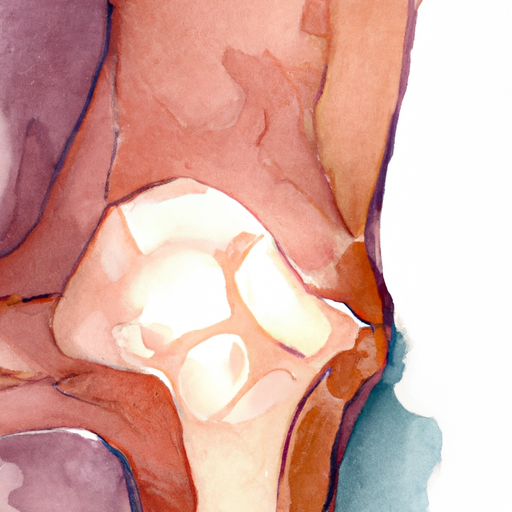In recent years, the Mediterranean diet has gained immense popularity for its numerous health benefits and potential to improve overall well-being. This comprehensive guide aims to delve deeper into the diagnosis and treatment of this dietary pattern, shedding light on its symptoms, causes, and the science behind its effectiveness. From understanding the origins of the Mediterranean diet to exploring its modern applications, this article aims to provide a holistic view of this lifestyle choice. So, whether you are a health enthusiast looking to adopt a new eating plan or a healthcare professional seeking to educate your patients, this article will serve as an invaluable resource to unravel the mysteries of the Mediterranean diet.
1. “Understanding the Mediterranean Diet: A Comprehensive Guide to Diagnosis and Treatment”
The Mediterranean diet has gained significant attention in recent years due to its numerous health benefits. It is not just a diet but a lifestyle that focuses on consuming whole, unprocessed foods that are commonly found in the Mediterranean region. This way of eating has been associated with reduced risks of chronic diseases, including heart disease, cancer, and diabetes.
Diagnosing adherence to the Mediterranean diet is relatively straightforward. Medical professionals and nutritionists evaluate a person’s eating habits and food choices to determine whether they align with the principles of the Mediterranean diet. This involves assessing the consumption of fruits, vegetables, whole grains, legumes, nuts, seeds, olive oil, fish, and moderate amounts of dairy products and red wine. On the other hand, the intake of processed foods, refined grains, added sugars, and unhealthy fats should be minimal.
Treatment for individuals diagnosed with a poor adherence to the Mediterranean diet involves making gradual changes to their eating habits. It is crucial to educate and guide them on the principles of the Mediterranean diet and its potential benefits. Encouraging the consumption of fruits and vegetables as the cornerstone of each meal is essential. Additionally, promoting the use of olive oil as the primary source of dietary fat and increasing the intake of fish and seafood can also contribute to improved health outcomes.
Symptoms associated with a poor adherence to the Mediterranean diet may include weight gain, high blood pressure, high cholesterol levels, and elevated blood sugar levels. These symptoms are often indicators of an increased risk of developing chronic diseases. However, it is important to note that symptoms may vary among individuals, and the severity of these symptoms can also depend on other factors such as genetics and lifestyle choices.
The causes of a poor adherence to the Mediterranean diet are multifactorial. Modern lifestyles, with convenience-oriented fast food and sedentary behaviors, have led to a shift towards consuming processed and unhealthy foods. Additionally, cultural and socioeconomic factors, lack of awareness, and limited access to fresh and affordable produce can also contribute to a poor adherence to the Mediterranean diet.
In conclusion, understanding the Mediterranean diet is crucial for promoting better health outcomes and preventing chronic diseases. Diagnosing adherence to this diet involves evaluating food choices, while treatment involves making gradual changes towards a more Mediterranean-inspired way of eating. Recognizing symptoms associated with a poor adherence to this diet and understanding the causes behind it can help healthcare professionals and individuals effectively address the issue and work towards a healthier lifestyle.
You can find out more about this theme here: https://bbgate.com/media/phenylacetone-p2p-synthesis-via-bmk-ethyl-glycidate.86/.
2. “Unveiling the Symptoms and Causes of the Mediterranean Diet: A Closer Look at its Health Benefits”
The Mediterranean diet has gained significant attention in recent years for its numerous health benefits. This dietary pattern, inspired by the traditional eating habits of countries bordering the Mediterranean Sea, has been associated with reduced risks of heart disease, certain cancers, and chronic conditions like diabetes and obesity. In this section, we will delve deeper into the symptoms and causes of the Mediterranean diet and explore how it contributes to overall well-being.
One of the key symptoms of following the Mediterranean diet is improved cardiovascular health. Studies have shown that individuals who adopt this eating pattern are less likely to develop heart disease and experience fewer cardiac events such as heart attacks and strokes. This can be attributed to the high intake of heart-healthy foods like fruits, vegetables, whole grains, and olive oil, which are rich in antioxidants, fiber, and monounsaturated fats. These components help lower cholesterol levels, reduce inflammation, and maintain healthy blood pressure, all of which contribute to a healthier cardiovascular system.
Another symptom associated with the Mediterranean diet is a decreased risk of certain cancers. Research suggests that the abundance of plant-based foods in this diet, along with the consumption of fish and limited intake of red meat, may help protect against certain types of cancer, including breast, colorectal, and prostate cancers. The phytochemicals and antioxidants present in fruits, vegetables, and whole grains have been shown to have anti-cancer properties, while the omega-3 fatty acids found in fish exert protective effects against various forms of the disease.
The causes behind the health benefits of the Mediterranean diet lie in its unique combination of nutrient-rich foods. The emphasis on plant-based foods, including fruits, vegetables, legumes, and nuts, ensures a high intake of vitamins, minerals, and fiber. These nutrients play essential roles in maintaining optimal health and supporting various bodily functions. Additionally, the consumption of moderate amounts of dairy products, poultry, and eggs provides adequate protein and essential amino acids.
Furthermore, the Mediterranean diet encourages the consumption of healthy fats, primarily derived from olive oil and fatty fish. These fats not only contribute to satiety and enhance the flavor of meals but also provide a source of essential omega-3 fatty acids, which have anti-inflammatory properties and support brain health.
Overall, the Mediterranean diet stands out for its ability to promote overall well-being and reduce the risk of chronic diseases. Its symptoms include improved cardiovascular health, decreased risks of certain cancers, and better weight management. The causes behind these benefits can be attributed to the nutrient-rich composition of the diet, including the abundance of plant-based foods, healthy fats, and limited intake of processed foods and sugars. By adopting the Mediterranean diet, individuals can reap these health benefits and enhance their quality of life.
3. “Exploring the Mediterranean Diet: From Traditional Origins to Modern Applications”
The Mediterranean diet has gained widespread recognition for its numerous health benefits and has become a popular choice for people looking to improve their overall well-being. Originating from the traditional dietary patterns of countries bordering the Mediterranean Sea, this diet has evolved over centuries and is now widely regarded as a healthy and sustainable way of eating.
The traditional Mediterranean diet is primarily plant-based, emphasizing fruits, vegetables, whole grains, legumes, and nuts. It also includes moderate consumption of fish, poultry, and dairy products, and limited intake of red meat. Olive oil, a staple in this diet, is used generously as the main source of fat. Additionally, the Mediterranean diet encourages the consumption of herbs and spices, which not only enhance the flavor of dishes but also provide added health benefits.
The origins of the Mediterranean diet can be traced back to the eating habits of people living in Greece, Italy, Spain, and other Mediterranean countries. These regions have a long history of agriculture and fishing, which has shaped their dietary patterns. The diet was not only influenced by the availability of locally grown produce but also by cultural and social traditions.
The Mediterranean diet gained significant attention in the 20th century when it was observed that people living in these regions had lower rates of chronic diseases, such as heart disease and certain types of cancer, compared to people in other parts of the world. Researchers began studying the diet and its potential health benefits, leading to the development of the Mediterranean diet pyramid as a visual representation of its recommended food groups and portions.
Modern applications of the Mediterranean diet have expanded beyond the Mediterranean region. Its popularity can be attributed to the growing body of scientific evidence supporting its positive effects on health. Numerous studies have shown that following a Mediterranean-style eating pattern can help reduce the risk of various chronic conditions, including cardiovascular disease, type 2 diabetes, obesity, and certain types of cancer.
Moreover, the Mediterranean diet is not just about what foods to eat but also encompasses a holistic approach to lifestyle. Regular physical activity, social connections, and mindful eating are vital components of this dietary pattern. The Mediterranean diet promotes a balanced and enjoyable eating style, encouraging individuals to savor their meals, eat together with family or friends, and engage in regular physical activity, such as walking or cycling.
In conclusion, the Mediterranean diet has come a long way from its traditional origins to its modern applications. It has evolved into a well-established dietary pattern that offers numerous health benefits and has been extensively studied by researchers worldwide. Embracing the Mediterranean diet not only promotes better health but also allows individuals to appreciate the cultural and culinary traditions of the Mediterranean region.

